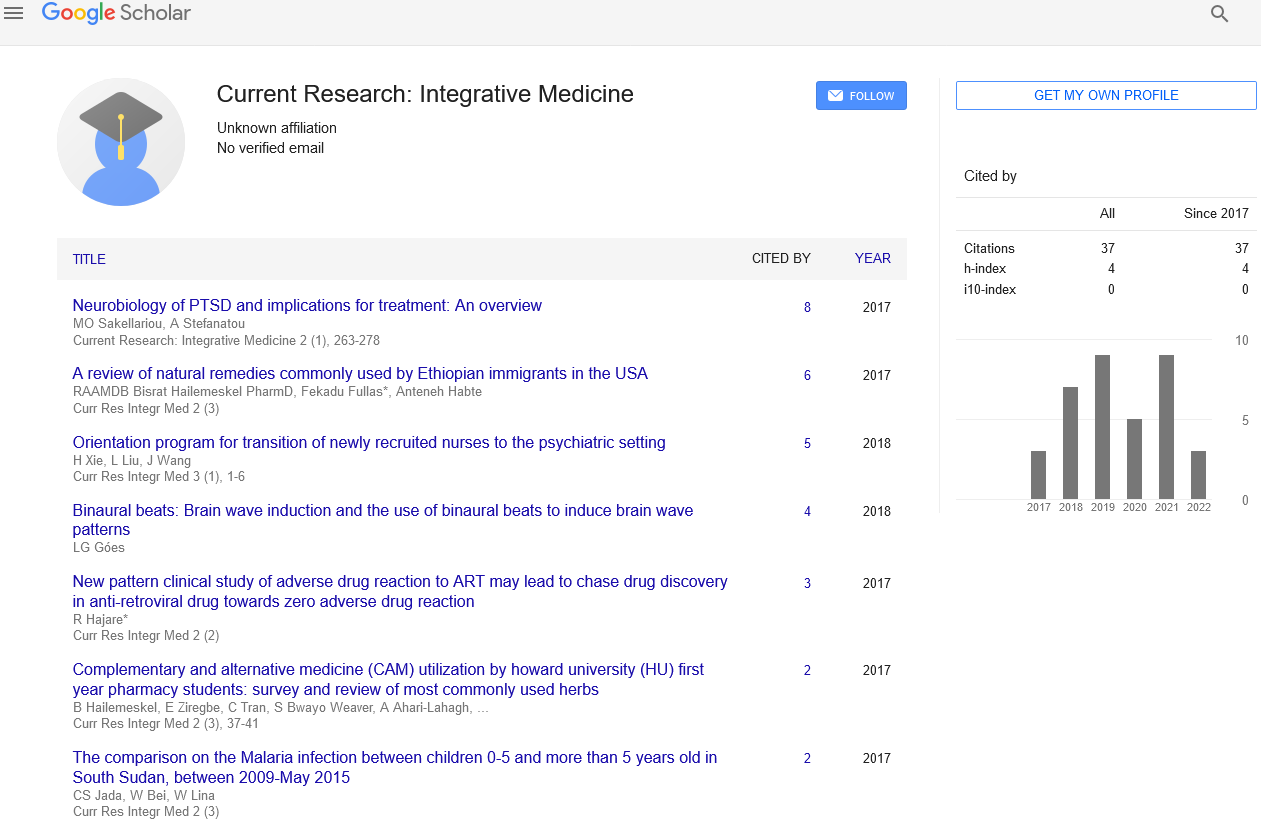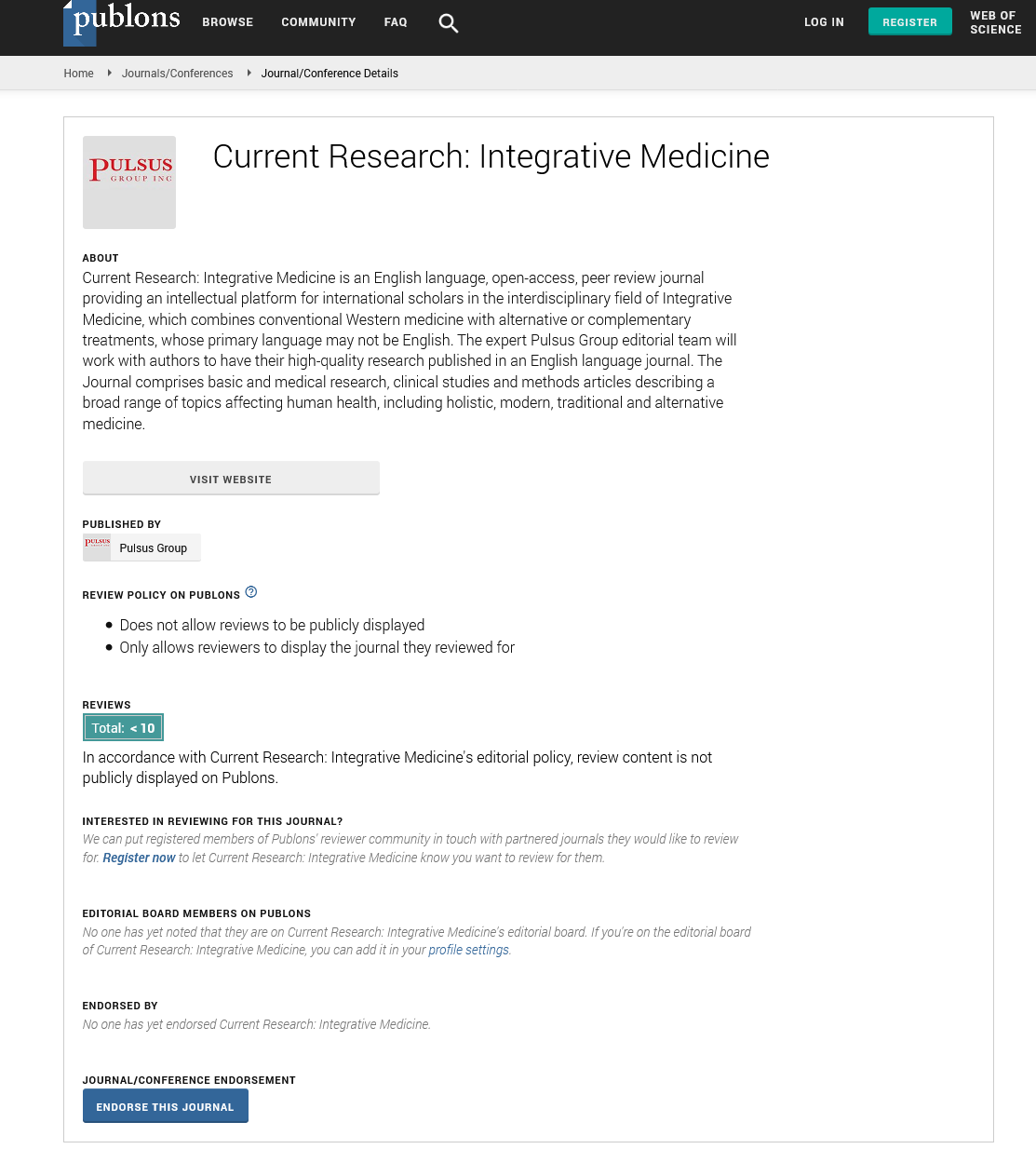Considerations in dermatology during the COVID-19 pandemic
Received: 30-Jul-2021 Accepted Date: Aug 13, 2021; Published: 20-Aug-2021
Citation: Schwartzberg L. Considerations in dermatology during the COVID-19 pandemic. Curr Res Integr Med. 2021;6(2):2.
This open-access article is distributed under the terms of the Creative Commons Attribution Non-Commercial License (CC BY-NC) (http://creativecommons.org/licenses/by-nc/4.0/), which permits reuse, distribution and reproduction of the article, provided that the original work is properly cited and the reuse is restricted to noncommercial purposes. For commercial reuse, contact reprints@pulsus.com
Description
There are some notable challenges dermatologist’s faces in the time of COVID. In state of global contagion, personal protective equipment is being worn for hours on end and there is abundant disinfectant use. These are irritants that can cause dryness and breakage of the skin’s defensive barrier. Itching, burning, desquamation, fissures, and maceration are all common results of preventative measures people take during this fearful time. It’s important to be cognizant of the effects of these protective measures on the skin and its barrier function. Contact dermatitis is a common manifestation of this irritation and commonly affects the hands, malar, and perioral area. Those in healthcare are particularly at risk of secondary skin damage. Managing hand dermatitis will be a key role for dermatologists treating healthcare workers and the general population during this time. Applying greasy moisturizers may help and will not interfere with hand sanitizer efficacy.
The use of biologics and immunomodulators during COVID-19 is a hot issue for the dermatological community. Immunocompromised states increase the risk of viral infection so a risk-benefit analysis must be done to determine the proper care for patients who use these medications for dermatological conditions such as psoriasis and pemphigus. According to an article by Wang, medications such as systemic steroids and azathioprine have demonstrated increased risk of COVID-19. For dermatologists prescribing immunomodulating medications, a thorough review of literature should be done prior to consulting these patients. Additionally, drug reactions are surging during this time such as that of hydroxychloroquine during its potential use for managing COVID-19.
Another concern is the delay of skin cancer treatment. Due to postponements in surgical procedures during COVID-19, when patients finally do come in for excision, they will be presenting with considerably larger tumors.
During a pandemic, it is important to be cognizant of these new factors affecting patient care. The management of patients in dermatology may be different during this time making it only more vital to be vigilant with patient follow up and open discussion on treatment plans.
Applying saturating skin health management items after hand purging is the fundamental advance in keeping the skin hydrated and forestalling further strange skin responses. These hydrating items ought to be generously applied, on various occasions each day, especially following hand washing.
Exacerbation of past skin illnesses, like rosacea, skin inflammation, atopic dermatitis and neurodermatitis, was additionally seen in some COVID-19 patients. For passionate strain during the episode may exasperate these sicknesses, we ought to append significance to the mental advising for these patients. Facial skin inflammation and rosacea happened or exasperated because of delayed utilization of veils during the pandemic. Regular utilization of skin sanitizers expanded the frequency of contact dermatitis, in COVID-19 patients as well as in solid people and clinical specialists. Numerous dermatologists open free online interview to offer assistance to these people in China.
Thick oily creams and balms (e.g., oil jam) give higher insurance against xerosis than salves. To diminish the danger of contact refinement, it is energetically prescribed to utilize scent free and hypoallergenic items.






